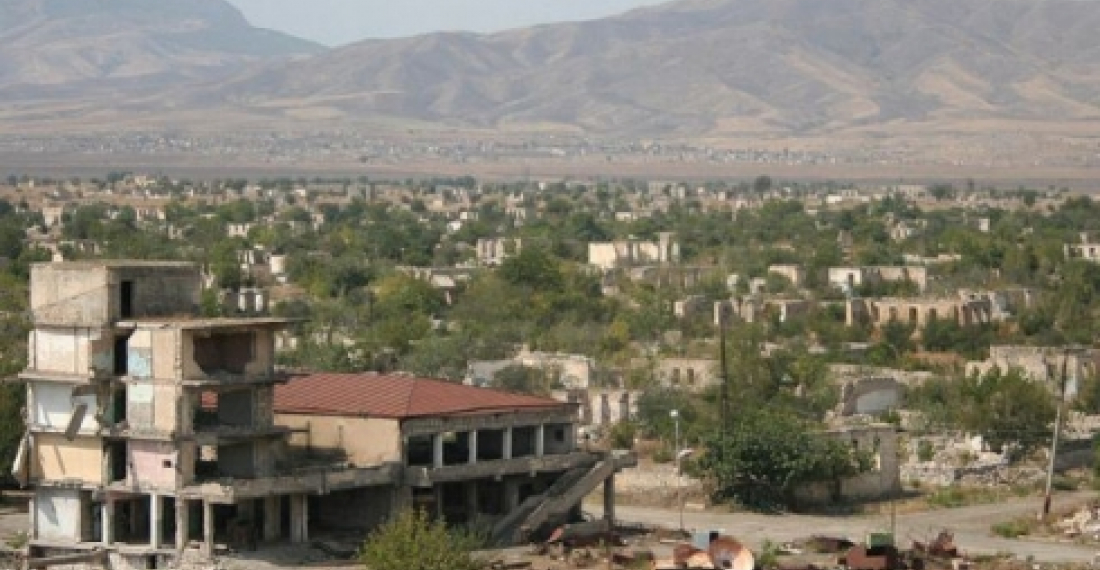Armenian and Azerbaijani officials continued to exchange sharp words ahead of a meeting of the Presidents of the two countries. The Foreign Minister of Armenia, Edward Nalbandian confirmed that the meeting will take place when speaking at a Press Conference in Yerevan yesterday (16 January), but refused to say where and when the meeting will be held. Earlier reports had suggested that the meeting will take place next week in Sochi and will be hosted once again by the Russian President Dimitri Medvedev.
Ahead of the meeting the two sides have continued exchanging sharp words and the situation is also tense on the line of contact separating the two sides.
Armenian sources claimed that Azerbaijan violated the cease fire ninety times on New Year's Eve and New Year's Day, firing more than 1200 shots, and that in the last week guns and snipers had been used. Earlier Azerbaijan had stated that five of its soldiers were killed by the Armenian side in October and November of last year.
The OSCE Special Representative of the Chairman in Office and his staff were today expected to conduct monitoring of the line of contact. However many consider that this monitoring, involving only three individuals is far from enough. The Armenian side has accused Azerbaijan of blocking the allocation of further financial resources that would enable more monitors to be engaged. According to a statement by the Armenian self declared Nagorno-Karabakh Republic Foreign Ministry "on December 22, 2011, the OSCE Permanent Council approved the unified Budget of the organization for 2012. Along with this, the Permanent Council discussed a request to increase the funding for the Office of the Personal Representative of the OSCE Chairman-in-Office to ensure sufficient resources to investigate potential incidents on the Line of Contact..." The statement claims that "the OSCE member-states supported the idea of increasing the funds for the Office of the Chairman in Office Personal Representative. It was the Azerbaijani delegation that opposed the idea explaining its position by the fact that it could not approve additional funding for the Office until a final agreement on the details of the mechanism of the incidents' investigation was achieved".
The statement said that "This once again shows that Azerbaijan is not interested in the investigation of incidents on the line of contact, since it will prove that it is the Azerbaijani party that regularly provokes incidents, aggravating hostility and distrust of the parties towards each other and driving the negotiation process to a deadlock".
Similar accusations were also made by the Armenian Foreign Minister in his press conference in Yerevan.
This prompted a response from the Azerbaijani Foreign Ministry, whose spokesperson Elman Abdullayev dismissed accusations by Armenia that it is hampering creation of a mechanism to investigate violations of the cease-fire. "The biggest problem is the occupation of Azerbaijani territory by Armenia. It is Armenia that occupies our lands and kills Azerbaijani civilians, even children. There is a need to investigate the murders committed by snipers. We would also like to know whether Armenian Foreign Minister Edward Nalbandian is planning to hold a fair and honest investigation into the numerous murders of Azerbaijani civilians by Armenian snipers," Abdullayev said. The spokesman expressed regret that "Yerevan is not constructive on resolution of the Nagorno-Karabakh conflict".
Commonspace.eu political editor said in a comment: "It has become a common feature that ahead of meetings of the Presidents the sides engage in a war of words to show that they are entering the negotiations from a position of strength. This often contributes towards creating a bad atmosphere in the negotiations. On this occasion there are even less expectations then usual that the meeting between the two Presidents will lead to a breakthrough in the negotiations. The sides should however at least consider a "propaganda cease fire" ahead of the meeting to give themselves and their citizens an opportunity to reflect more calmly on the issues at hand."
source: commonspace.eu with agencies
photo: The town of Agdam in Nagorno-Karabakh in ruins for the last two decades (archive picture)







